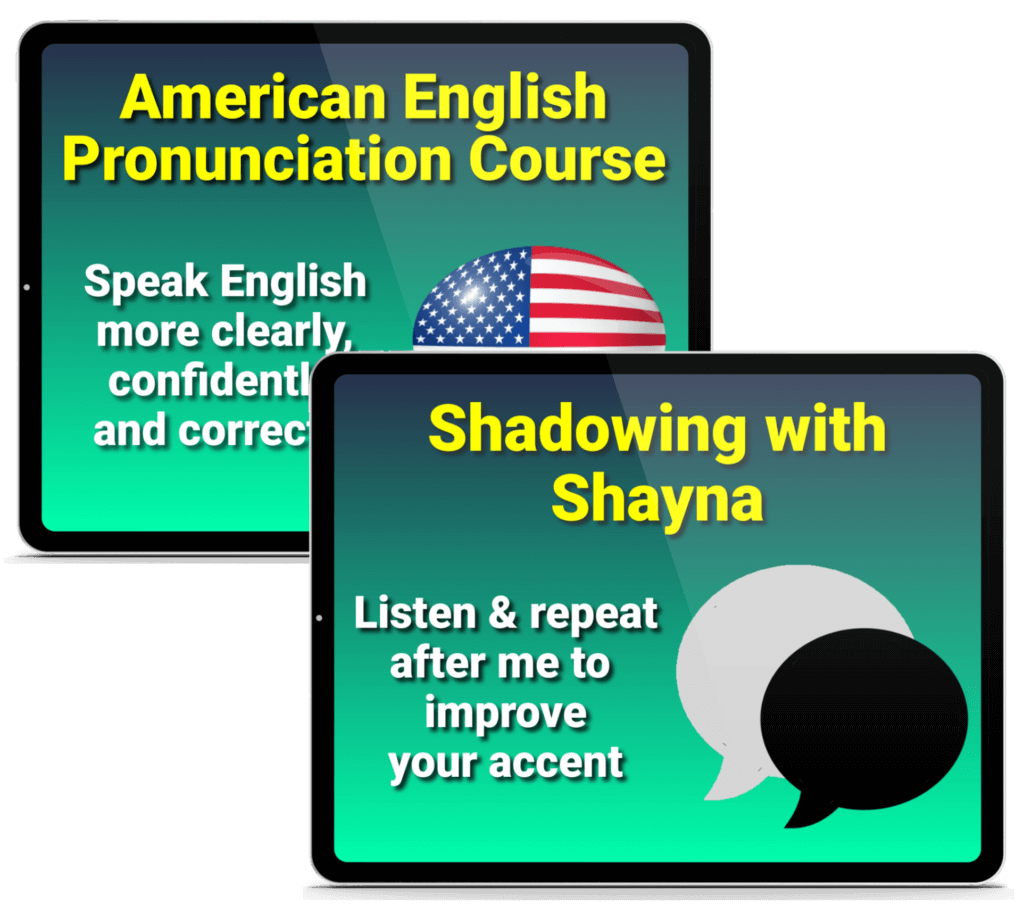
Download 50+ hard words + audio
Pronunciation & Shadowing Courses
Today I’m going to teach you an exercise for practicing the pronunciation of long, difficult multi syllable words.
Our example words for this exercise will be particularly and individualistic. But you can use this exercise with ANY English word, and if you click on the link in the video description, there are more words for you to practice your pronunciation using this method.
Step 1: Listen to the word
DON’T try to figure out the pronunciation from just reading the word. Because when it comes to English spelling and pronunciation, there are lots of exceptions and irregular words. So the best way to learn the correct pronunciation is to listen to the word spoken by a native English speaker.
You can easily do this online by looking up the word on a website like thefreedictionary.com. You can then click on the American flag to hear the American English pronunciation or the British flag to hear the British English Pronunciation.
Step 2: Separate the word into parts
Separate each word into its syllables. It’s helpful to capitalize and underline the strong syllable, the one that should receive the most emphasis.
Step 3: Say the word slowly, pronouncing each syllable clearly
For example:
par – TIC – u – lar – ly
in – di – vi – du – al – IS – tic
Separating the syllables and saying it slowly helps make sure you have the right sounds, and your mouth doesn’t get confused by trying to say such a complicated word too fast.
Step 4: Say the word at medium speed, trying to connect the syllables instead of pausing
par-TIC-u-lar-ly
in-di-vi-du-al-IS-tic
Step 5: Start trying to say the word faster and faster, increasing the speed until you can say it normally
For example:
particularly, particularly, particularly, particularly, particularly
Remember to start slow and increase the speed gradually.
individualistic, individualistic, individualistic, individualistic, individualistic
You can also practice difficult parts of the word in isolation. For example, the last two syllables of particularly:
lar-ly
lar-ly
lar-ly
Particularly
In individualistic, the most difficult part might be in the middle:
vi-du-al
vi-du-al
individualistic
Another exercise is to try “building” the word syllable by syllable.
For example,
in
in-di
in-di-vi
in-di-vi-du
in-di-vi-du-al
in-di-vi-du-al-is
in-di-vi-du-al-IS-tic
Got it?
- Step 1: Listen to the word
- Step 2: Break the word into syllables
- Step 3: Say each syllable slowly
- Step 4: Say it at medium speed, linking the syllables
- Step 5: Practice repeating it faster and faster
And a couple bonus tips are to practice difficult sounds or difficult parts in isolation, and to try “building” the word syllable by syllable.
Try pronouncing these:
When it comes to pronunciation, practice makes perfect – the only way to get better at English pronunciation is by doing it, by saying the words, and by training your mouth to make the right sounds.
I have two courses that can help you train and improve your pronunciation – the American English Pronunciation Course and Shadowing with Shayna. These courses have lots of exercises that will give you the practice you need to speak more clearly, confidently and correctly. If you buy both courses together, there’s a discount – so click on the link in the video or in the description for more information and to sign up.
I hope you’ll remember the tips in this lesson next time you see a long, complicated English word. Thanks for joining me today – bye for now!










